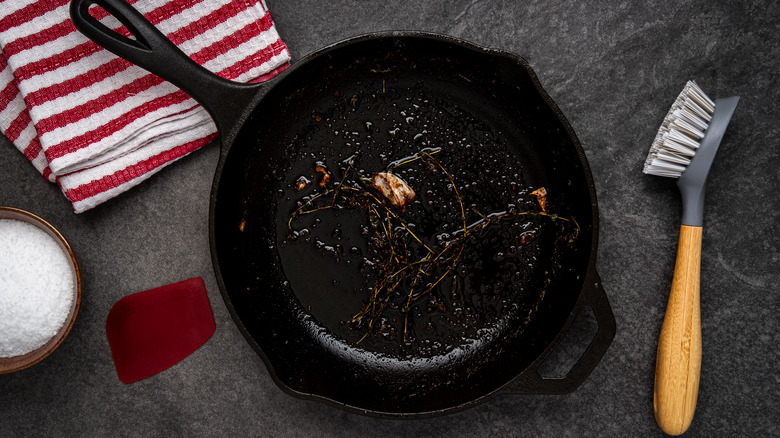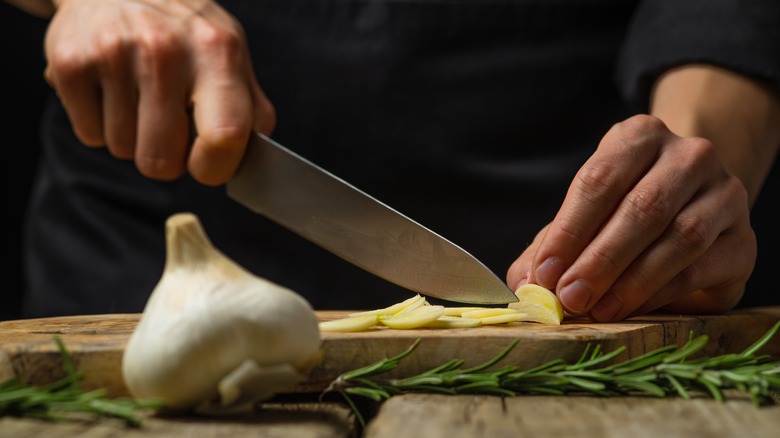How Minced Garlic Is Actually Ruining Your Cast-Iron Skillet
The gem of any kitchen pantry is one that requires special care over most other cooking tools: the cast-iron skillet. It's sure to stand the test of time and never has a short supply of zingy flavor to contribute to the next meal you make with it — if you follow the proper etiquette, that is.
A great amount of care goes into maintaining the seasoned, oily layer at the base of your skillet, making sure to clean it the right way, as well as keeping rust from creeping its way in. There are many heavenly foods you should cook in a cast-iron skillet, but there are also many you shouldn't even think about throwing in, such as minced garlic.
Garlic is an umami superfood that can be found in the ingredient arsenal of chefs and home cooks who love creating complex flavors. It adds delicious depth and tends to give a dish that little something it was missing before. If you're a garlic fiend and need to punch up the taste of your cast-iron skillet meal, consider using garlic cloves instead of minced garlic. You could be hurting the pan you've worked so hard to refine.
Minced garlic burns very easily compared to cloves
The important thing to remember is that garlic is not completely forbidden if you're cooking with an iron skillet. But if you're brave enough to use minced garlic as your seasoning of choice, you'd better be prepared to watch it like a hawk.
"Garlic is finicky and will burn quickly. Keep the temperature low and slow. Second, be extra generous with the cooking oil," advises Southern Living. The outlet stresses that the extra oil "makes a huge difference in keeping the garlic from caramelizing into the skillet before you're able to stop cooking." But even if you follow these tips carefully and exactly, there are so many factors that could still result in burnt garlic in your once-beautiful cast-iron skillet. Grab a non-stick pan if you really want to go this route. Otherwise, garlic cloves, or even garlic powder, are your best friends.
Be warned, too, that once your skillet absorbs the burnt garlic, so will the rest of the meals you attempt to cook in your cast-iron skillet. "What a delicious berry-garlic cobbler!" said no one ever. (Thankfully, all is not lost, and you can save your skillet from lingering odors and acidic flavors with these pan-saving tips.) You'll have to re-season it and start over, so maybe grab those cloves you don't feel like peeling to use instead. It'll save you from experiencing a bonafide cooking nightmare in the end.

